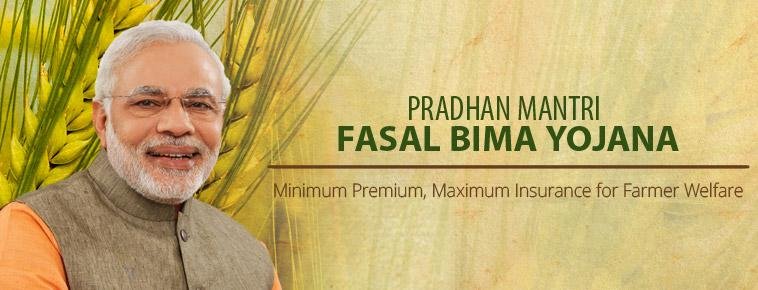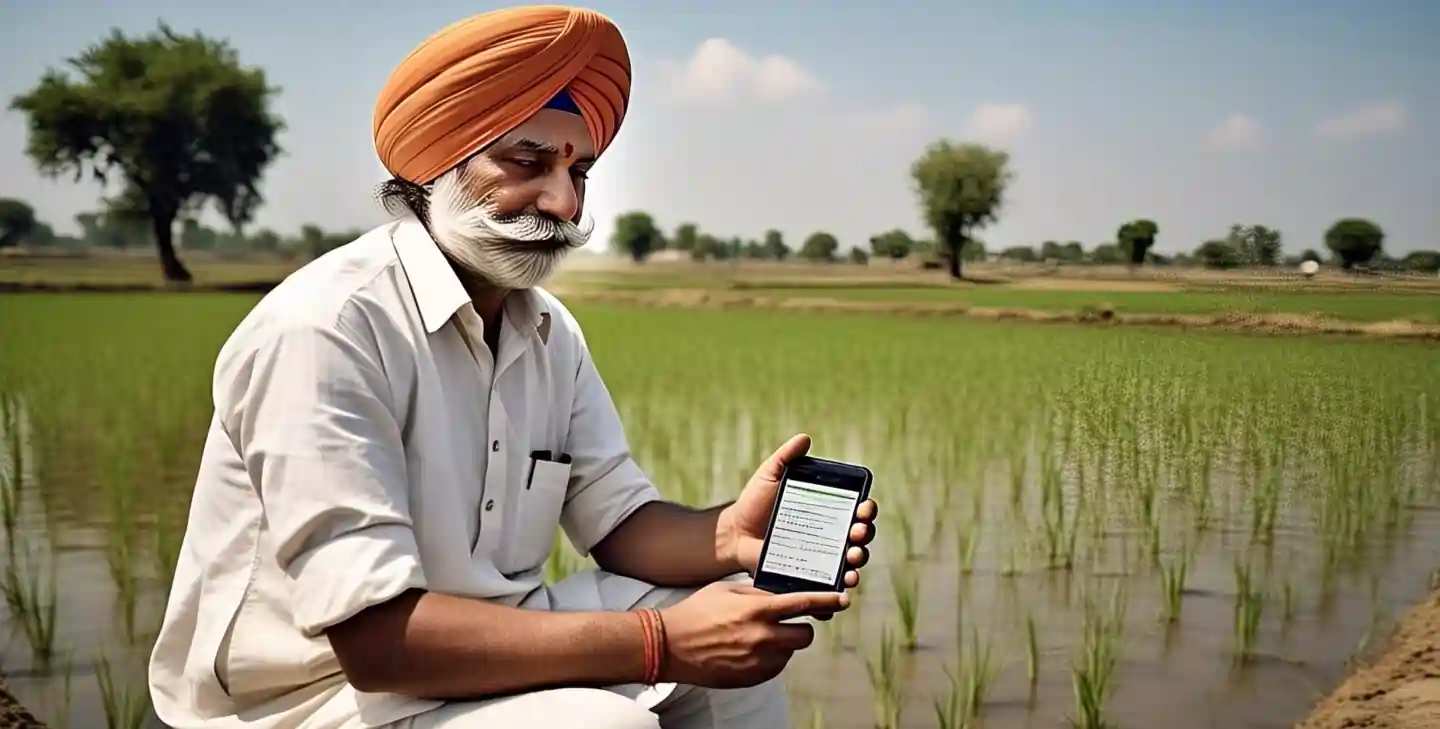In the expansive fields of India, where farmers toil tirelessly from dawn to dusk, the unpredictability of nature often casts a long shadow over their hard work and aspirations. Droughts, floods, and pest infestations can turn a season of hope into a year of despair. Recognizing the immense challenges faced by the agricultural community, the Indian goverment introduced the Pradhan Mantri Kisan Fasal Bima Yojana (PMFBY), a groundbreaking crop insurance scheme designed to safeguard farmers against unforeseen adversities. This initiative not only aims to provide financial security but also to empower farmers with the confidence to cultivate their land without the constant fear of losses. In this article, we will delve into the intricacies of PMFBY, exploring its objectives, benefits, and the impact it has on the lives of millions across the nation. Join us as we unravel how this scheme serves as a crucial lifeline for farmers, fostering resilience in the face of adversity and nurturing the backbone of India’s economy.
Exploring the Core Features of Pradhan Mantri Kisan Fasal Bima Yojana
The Pradhan Mantri kisan Fasal Bima Yojana (PM-KISAN) is a revolutionary insurance scheme aimed at providing financial support to farmers during unforeseen circumstances. Key features of this program are designed to enhance the safety net for farmers, ensuring that their livelihood is safeguarded against natural calamities. The scheme provides coverage for various reasons causing crop loss,including droughts,floods,pests,and diseases. Additionally, it encompasses a wide range of crops, making it universally applicable and beneficial for a large demographic of farmers across the country.
One of the standout attributes of PM-KISAN is its affordability and accessibility. Farmers are required to pay only a nominal premium, usually as low as 1.5% of their sum insured, while the government subsidizes the remaining premium amount. the claim process is simplified,ensuring that farmers receive timely assistance without bureaucratic hurdles.Moreover, the integration of technology plays a pivotal role; with mobile apps and online portals, farmers can easily access information regarding their policies, file claims, and track their status. The table below summarizes the fundamental aspects of this transformative initiative:
| Feature | Details |
|---|---|
| Coverage | Natural disasters,pests,and diseases |
| Premium | 1.5% of the sum insured |
| Claim Process | Simplified and digital |
| Technology Use | mobile apps and online portals |

Assessing the Impact on Farmers’ Livelihoods and Agricultural Stability
Farmers play a crucial role in the agricultural ecosystem, and their financial security is essential for sustaining not just individual households but entire communities. The implementation of the Pradhan Mantri Kisan Fasal Bima Yojana (PMFBY) has shown promising results in this domain, as it mitigates the adverse effects of natural calamities. By providing a substantial safety net, farmers can transform their approach to cultivation, ultimately leading to improved productivity and economic stability. Key benefits of the scheme include:
- Risk Reduction: Coverage against crop loss due to unforeseen incidents like droughts, floods, and pests.
- Financial Support: Timely compensation enables farmers to recover quickly from losses and reinvest in their agricultural ventures.
- Increased Credit Access: A robust insurance mechanism makes it easier for farmers to obtain loans from banks, boosting their working capital.
Through such mechanisms, PMFBY contributes substantially to the resilience of farmers’ livelihoods and the overall agricultural landscape. With the assurance of insurance coverage, farmers are more inclined to adopt innovative farming practices and invest in advanced technologies. A comparative analysis illustrates thes impacts:
| Metrics | Before PMFBY | After PMFBY |
|---|---|---|
| Average Crop Loss Compensation | 30% of loss | 70% of loss |
| Loan Approval Rates | 40% | 75% |
| Adoption of Modern Techniques | 20% | 50% |
Such data clearly highlight the paradigm shift in farmers’ operational dynamics post-implementation of the scheme.By promoting agricultural stability, PMFBY is not only improving individual incomes but also enhancing the overall vitality of the agricultural sector.

Navigating the Enrollment Process and Eligibility Criteria for Beneficiaries
the enrollment process for the Pradhan Mantri kisan Fasal Bima Yojana is designed to be straightforward, ensuring that farmers can easily access the benefits available to them. To begin, farmers need to visit the official website or approach their local bank or insurance agent dedicated to this scheme. The following documents are typically required for enrollment:
- Aadhaar Card – This serves as the primary identification document.
- Bank Account Details – Ensuring timely disbursement of claim amounts.
- Land Records – Ownership or tenancy proofs for cultivation verification.
- Crop Details – Information on the type of crops being grown.
Eligibility criteria are crucial in determining who can benefit from this initiative. Generally,the scheme is available to all farmers,including those who are self-cultivating land,tenant farmers,and sharecroppers. However, it is essential to adhere to the following stipulations:
| Eligibility Criteria | Description |
|---|---|
| Crop Selection | The scheme covers notified crops in specific areas during the kharif and rabi seasons. |
| Insurance Premium Payment | Farmers must pay the prescribed premium, which is often subsidized by the government. |
| Timely Enrollment | Enrollment must occur within the stipulated time, usually before the planting season. |
By meeting these requirements, farmers can ensure they have the safety net provided through this scheme, allowing them to focus on their agricultural pursuits with peace of mind.

Empowering Farmers through Effective Utilization and Awareness Programs
Empowering farmers hinges on the effective dissemination of knowledge and resources, allowing them to make informed decisions about their agricultural practices. Programs designed to enhance awareness, such as workshops and community discussions, play a crucial role in equipping farmers with the insights needed to navigate challenges.By focusing on practical applications and real-world scenarios, these initiatives can definitely help farmers grasp concepts surrounding crop insurance, enabling them to effectively utilize schemes like the Pradhan Mantri Kisan Fasal Bima Yojana (PM-KFBY). Additionally, tailored training sessions that emphasize local conditions and specific crop needs can significantly enhance farmers’ understanding of potential risks and mitigation strategies.
The potential benefits of PM-KFBY can be maximized through diligent participation in awareness programs, which can cover essential aspects such as:
- Understanding Coverage: Clear explanations of what the insurance covers, including weather-related damages, pest attacks, and crop failures.
- Application Procedures: Step-by-step guidance on how to enroll in the scheme and fulfill documentation requirements.
- Claim Process: Detailed information on how to file for claims, ensuring that farmers can swiftly recover their losses.
| Feature | Description |
|---|---|
| Premium Rates | Subsidized rates to ensure affordability for farmers. |
| Crop coverage | Extensive range of crops eligible under the scheme. |
| Timely Payouts | Quick disbursement of claims to support farmers promptly. |
to Conclude
the Pradhan Mantri Kisan Fasal Bima Yojana stands as a beacon of support for farmers across India, embodying the government’s commitment to safeguarding the backbone of our agricultural society. As we navigate the complexities of an evolving climate and fluctuating market dynamics, this initiative not only offers financial security but also fosters resilience among the farming community. By enhancing their ability to cope with unforeseen circumstances, the scheme encourages farmers to innovate and invest in sustainable practices, ultimately contributing to the nation’s food security and economic stability.Understanding this lifeline is crucial for anyone invested in the future of agriculture, as it highlights the intersection of policy, technology, and the relentless spirit of our farmers. as we move forward, embracing such initiatives will be vital in cultivating a thriving and balanced agricultural ecosystem for generations to come.









